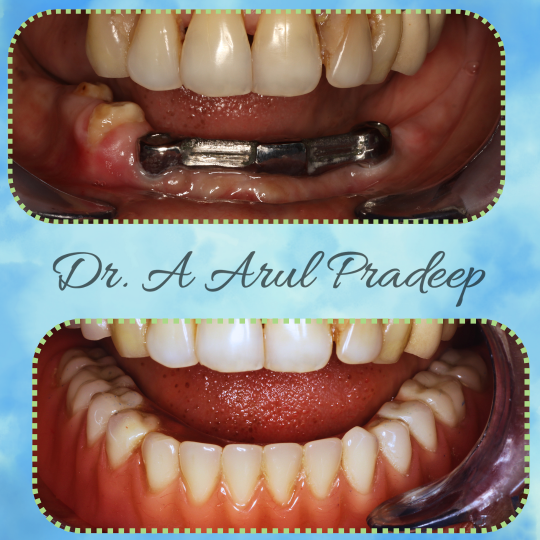+918048127677

This is your website preview.
Currently it only shows your basic business info. Start adding relevant business details such as description, images and products or services to gain your customers attention by using Boost 360 android app / iOS App / web portal.
A 67 year old patient was planned for tooth replac...

A 67 year old patient was planned for tooth replacement. After the evaluation of bone with CT scan, two implants were placed in lower canine regions. After waiting period bar attachment was given connecting the implant. Denture was fabricated and delivered . An implant-supported denture is a type of overdenture that is supported by and attached to dental implants. Unlike a regular denture, which rests on the gums and can sometimes slip out of place, an implant-supported denture is anchored securely in the jawbone, providing a more stable and comfortable fit. Here are some key points about implant-supported dentures: Stability and Comfort: Implant-supported dentures are much more stable than traditional dentures, which can shift and move. This stability improves comfort and makes it easier to chew and speak. Bone Preservation: Implants help preserve the jawbone. When teeth are missing, the jawbone can deteriorate over time. Implants stimulate the bone and help maintain its structure. Types: There are two main types of implant-supported dentures: bar-retained and ball-retained. Both types involve a denture that fits over a bar or balls and is attached to the implants. Procedure: The process usually involves placing implants into the jawbone, allowing time for the bone to heal and integrate with the implants (a process called osseointegration), and then attaching the dentures. Maintenance: Implant-supported dentures require proper care and maintenance, including regular cleaning and dental check-ups to ensure the health of the implants and surrounding tissues. Suitability: Not everyone is a candidate for implant-supported dentures. Factors such as bone density, overall health, and oral hygiene can influence whether this treatment is suitable for a patient.

